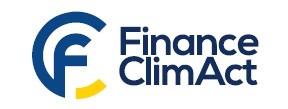Context and goals
Since the Paris Agreement in 2015, climate has been at the forefront of the finance industry concerns, but until now biodiversity and ecosystems had received a lesser level of attention. And yet, more than half of the world’s economy is directly dependent on nature. In 2022, COP15 and Kunming-Montreal (K-M) Global Biodiversity Framework raised the awareness of the international community on the need to act further and quicker for biodiversity protection and restoration.
What is clear from the K-M Framework is that if we are to reverse biodiversity loss, considerable capital is required. Public finance alone cannot fulfil the financing gap. 2DII is engaged to align the financial sector with K-M goals and increase financing in favour of biodiversity protection and restoration by leveraging its research on impact, emerging markets, and retail investment. Developing new thinking and solutions to mainstream financing for biodiversity are also complementary action levers. 2DII’s Nature-Finance Stream aims at addressing the specific topic of finance for biodiversity while avoiding silos with social and climate change issues.
Focus
Our Nature-Finance Stream is active in several areas. Notably, 2DII is a strong believer in nature-based solutions and finding innovative instruments to finance their deployment in rural and urban areas while tackling potential risks of greenwashing. The stream also pursues work on biodiversity reporting. The objective of our work around reporting is to clarify frameworks and to incentivise finance professionals to integrate further biodiversity into their investment decisions. Risk assessment linked to the loss of biodiversity is also key since better knowledge of risks for our economy and finance should lead decision-makers and financial institutions to increase financing in favour of biodiversity. 2DII is working on improving the regulatory framework linked to risk assessment and ways to mitigate such risks. Capacity building among supervisors in Europe is also a key aspect in which 2DII is involved. Leveraging its wide network among financial actors, academia, regulators and supervisors, 2DII gathers experts in the field of biodiversity and finance to ensure the ideas and solutions developed take into account the different views, practical constraints and challenges at stake.
Past work
2DII has been vocal on the links between climate change and biodiversity loss, the need to improve the European regulatory framework, the Amazonia Summit and on the urgency to transition the agricultural sector worldwide and in the EU.
In October 2023, 2DII organised the Conference Mainstreaming Finance for Biodiversity which brought together a number of industry professionals and regulators. Full attendance to this event demonstrated the high interest for the topic of biodiversity protection and restoration.
2DII is part of several working and experts groups such as the ADEME working group to build an ACT methodology for biodiversity or the expert group of the French Institute for Sustainable Finance.
Funding
As with 2DII’s other streams, the Nature-Finance Stream is committed to remain independent. It is funded by the Finance ClimAct program and the Go Nature Positive program. 2DII is currently looking for other sources of funding in order to develop its research ideas and solutions linked to improving the European regulatory framework, capacity building, the financing of nature-based solutions and the transition of the agriculture sector.




